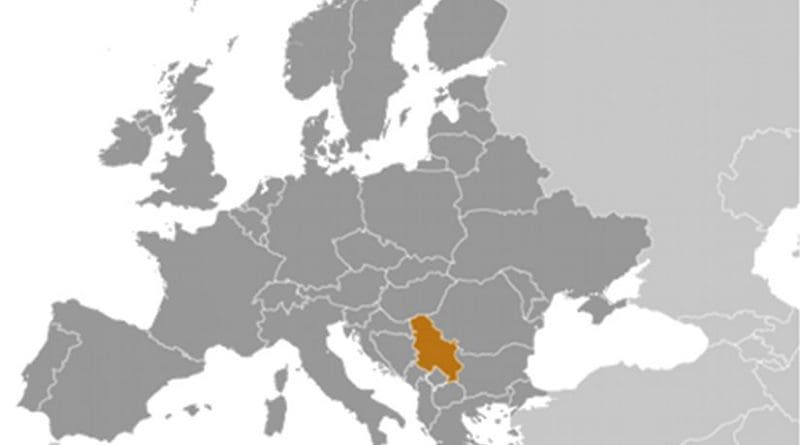Serbia: Ruling Party Wins Belgrade Elections
By Filip Rudic
Preliminary results show the ruling Serbian Progressive Party won Sunday’s local elections in Belgrade, which means it will continue to run the Serbian capital.
The ruling Serbian Progressive Party won most votes in Sunday’s Belgrade City Assembly elections and will most likely continue to run the capital for the next four years, preliminary results show.
Party chief and Serbian President Aleksandar Vucic said the party’s nominee for the post of mayor would be revealed within 15 days.
“This result will inspire more changes,” Vucic said after the polls were closed on Sunday evening.
The Progressives won 64 seats in the Sunday elections and will be able to form city government without needing a coalition partner, according to IPSOS Strategic Marketing agency.
The list led by former Belgrade mayor Dragan Djilas ranked second with 18.8 per cent of votes, while the list led by Aleksandar Sapic, the head of the New Belgrade municipality, won 9.1.
The Socialists Party of Serbia, the Progressives’ coalition party in the state government, won 6.1 per cent.
All other parties, including the Democratic Party, the coalition Dveri-Enough is Enough, the civic group Let’s Not Drown Belgrade and the Serbian Radical Party, failed to meet the threshold to win seats in the asseembly.
The Centre for Research, Transparency and Accountability, CRTA, the NGO which monitored the elections, said it observed irregularities and incidents at 8 per cent of the polling stations.
The incidents included activists bringing voters to the polling stations in organised groups, the keeping of records of voters at the polling stations, as well as schemes whereby citizens were given pre-filled ballots ahead of the election.
CRTA director Rasa Nedeljkov said the irregularities could affect the outcome of the elections.
“There are also reports of people asking voters at the entrance of polling stations who they intend to vote for and giving them suggestions,” Nedeljkovic told a press conference before the polls closed.
CRTA also reported that one of its observers was punched and another was physically threatened when they were checking or reporting on irregularities in two municipalities.
After the voting finished, Nedeljkovic said three more CRTA observers were thrown out of the polling stations, preventing them from overseeing the vote count.
Throughout the day, opposition leaders and activists posted videos of alleged irregularities on social networks, and accused the ruling party of trying to influence the voting.
The president of the City Electoral Commission, Zoran Lukic, said that there were no major problems and that the irregularities that happened could not affect the election process.
The city’s potential 1,606.931 potential voters were asked to choose between 24 electoral lists and cast ballots at 1,185 polling stations.
Belgrade Assembly members serve four-year terms elected on a closed party list proportional representation system.
Voters select from the party or coalition lists of candidates, circling their preferred list on the ballot. They cannot select individual candidates.
Parties and coalitions rank candidates in order of preference on lists, so the higher up the list a candidate is, the greater their chance of winning a seat. One in three candidates must come from the under-represented sex.
Party and coalition lists must win at least 5 per cent of the vote to take any of the assembly’s 110 seats.

